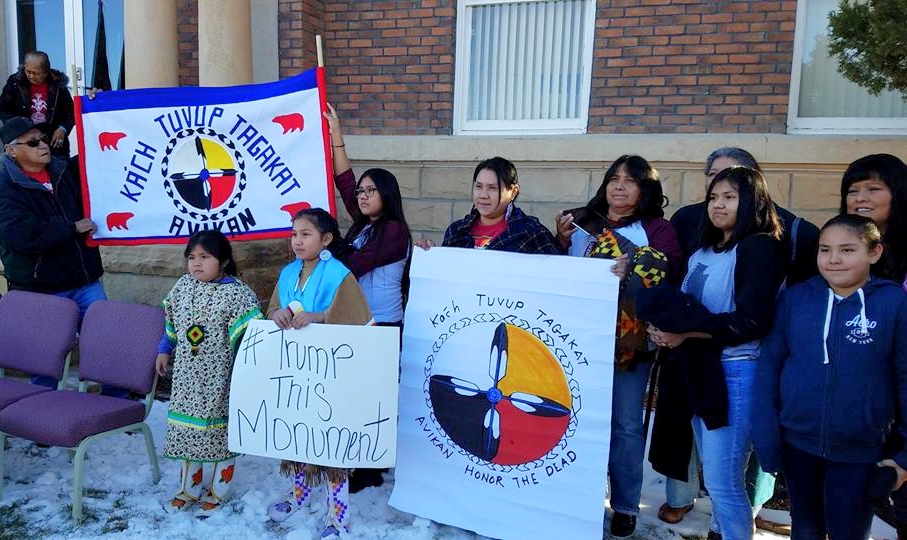Facts about the nature and provisions of settlement agreements, how much taxpayer money is going to pay environmentalist lawyers and activists, and possible collusion between “adversarial” parties, i.e. federal bureaucrats and environmental activists, are never, or rarely, revealed.
by Marjorie Haun
With little fanfare, the bill titled “Open Book on Equal Access to Justice” was passed recently as part of the sweeping 2019 Natural Resources Management Act (Lands bill) and is an important and much-needed reform. This reform is designed to put a stop to the deal-making and collusion between federal agencies and litigious NGO’s which have grown fat and happy over the years by suing the government.
By misusing the Equal Access to Justice Act, which was originally intended to facilitate court actions for citizens of limited means, wealthy environmentalist groups have fleeced the American taxpayer by forcing federal agencies to pay their attorneys’ fees in countless lawsuits against the government. These abuses have enriched radical groups to the tune of millions per year. Addressing the outrageous abuses of the Equal Access to Justice Act (EAJA) with important “transparency” provisions gives this bill clout in fighting governmental abuse and corruption.
Republicans in the House and Senate have seen the need for serious EAJA reform for years. In 2015 Congressman Paul Gosar, of House Natural Resources Committee said:
“Given the rampant waste, fraud and abuse that has infected the federal government, increasing transparency of how taxpayer dollars are spent is more important than ever. The intent of the Equal Access to Justice Act was to help the average Joe fight back against an overreaching and oppressive federal government. Unfortunately, this well-intentioned law has been hijacked by environmentalists whose lawyers are billing taxpayers for rates as high as $750 an hour.”
“Environmental groups have abused EAJA and used it as a money-making tool to advance their far left agenda. Our bipartisan bill will restore common sense to this law and crack down on these abuses.”
EAJA abuse has been made possible by a veil of bureaucratic secrecy. Although the Freedom of Information Act (FOIA) applies to EAJA cases, federal agencies often slow-walk FOIA requests, arbitrarily redact information making it difficult to find information about who is suing and settling, or ignore the requests altogether. Facts about the nature and provisions of settlement agreements, how much taxpayer money is going to pay environmentalist lawyers and activists, and possible collusion between “adversarial” parties, i.e. federal bureaucrats and environmental activists, are never, or rarely, revealed. If federal agencies comply with the new law, all these critical facts will be readily available to the public. The bill’s important provisions are:
- Each year Congress will receive a report identifying the number, nature, and amount of the [EAJA] awards, the claims involved in the controversy, and any other relevant information that may aid Congress in evaluating the scope and impact of such awards.
- The report will include information pertaining to all payments of fees and other expenses awarded under this section that are made pursuant to a settlement agreement, regardless of whether the settlement agreement is sealed or otherwise subject to a nondisclosure provision.
The bill also requires the government to create a new searchable database as soon “as practicable” containing information about which groups are suing which federal agencies, how money much is being asked for or awarded in settlements, payment of attorney and court fees, and whether or not the judgement was justified. The database will include:
(1) The case name and number of the adversary adjudication, if available, hyperlinked to the case, if available
‘‘(2) The name of the agency involved in the adversary
‘‘(3) A description of the claims in the adversary adjudication
‘‘(4) The name of each party to whom the award was made as such party is identified in the order or other court document making the award
‘‘(5) The amount of the award
‘‘(6) The basis for the finding that the position of the agency concerned was not substantially justified
Transparency in government can be a powerful deterrent against the kinds of corruption and mismanagement now associated with federal land management agencies. Compliance with this aspect of the new lands bill will go a long way in helping BLM, Fish & Wildlife and others rebuild trust with the American people, and save countless millions of taxpayer dollars in the process.
The “Open Book to Equal Access to Justice” bill is below. You can view the entire lands bill here.
Subtitle C—Open Book on Equal Access to Justice
4201. FEDERAL ACTION TRANSPARENCY.
(a) MODIFICATION OF EQUAL ACCESS TO JUSTICE
PROVISIONS.—
(1) AGENCY PROCEEDINGS.—Section 504 of
title 5, United States Code, is amended—
(A) in subsection (c)(1), by striking ‘‘, United States Code’’;
(B) by redesignating subsection (f) as subsection (i); and
(C) by striking subsection (e) and inserting the following:
‘‘(e)(1) Not later than March 31 of the first fiscal year beginning after the date of enactment of the Natural Resources Management Act, and every fiscal year thereafter, the Chairman of the Administrative Conference of the United States, after consultation with the Chief Counsel for Advocacy of the Small Business Administration, shall submit to Congress and make publicly available online a report on the amount of fees and other expenses awarded during the preceding fiscal year under this section.
‘‘(2) Each report under paragraph (1) shall describe the number, nature, and amount of the awards, the claims involved in the controversy, and any other relevant information that may aid Congress in evaluating the scope and impact of such awards.
‘‘(3)(A) Each report under paragraph (1) shall account for all payments of fees and other expenses awarded under this section that are made pursuant to a settlement agreement, regardless of whether the settlement agreement is sealed or otherwise subject to a nondisclosure provision.
‘‘(B) The disclosure of fees and other expenses required under subparagraph (A) shall not affect any other information that is subject to a nondisclosure provision in a settlement agreement.
‘‘(f) As soon as practicable, and in any event not later than the date on which the first report under subsection (e)(1) is required to be submitted, the Chairman of the Administrative Conference of the United States shall create and maintain online a searchable database containing, with respect to each award of fees and other expenses under this section made on or after the date of enactment of the Natural Resources Management Act, the following information:
‘‘(1) The case name and number of the adversary adjudication, if available, hyperlinked to the case, if available
‘‘(2) The name of the agency involved in the adversary
‘‘(3) A description of the claims in the adversary adjudication
‘‘(4) The name of each party to whom the award was made as such party is identified in the order or other court document making the award
‘‘(5) The amount of the award
‘‘(6) The basis for the finding that the position of the agency concerned was not substantially justified
‘‘(g) The online searchable database described in subsection (f) may not reveal any information the disclosure of which is prohibited by law or a court order
‘‘(h) The head of each agency shall provide to the Chairman of the Administrative Conference of the United States in a timely manner all information requested by the Chairman to comply with the requirements of subsections (e), (f), and (g).’’.
(2) COURT CASES.—Section 2412(d) of title 28,
United States Code, is amended by adding at the end the following:
‘‘(5)(A) Not later than March 31 of the first fiscal year beginning after the date of enactment of the Natural Resources Management Act, and every fiscal year thereafter, the Chairman of the Administrative Conference of the United States shall submit to Congress and make publicly available online a report on the amount of fees and other expenses awarded during the preceding fiscal year pursuant to this subsection
‘‘(B) Each report under subparagraph (A) shall describe the number, nature, and amount of the awards, the claims involved in the controversy, and any other relevant information that may aid Congress in evaluating the scope and impact of such awards
‘‘(C)(i) Each report under subparagraph (A) shall account for all payments of fees and other expenses awarded under this subsection that are made pursuant to a settlement agreement, regardless of whether the settlement agreement is sealed or otherwise subject to a nondisclosure provision
‘‘(ii) The disclosure of fees and other expenses required under clause (i) shall not affect any other information that is subject to a nondisclosure provision in a settlement agreement
‘‘(D) The Chairman of the Administrative Conference of the United States shall include and clearly identify in each annual report under subparagraph (A), for each case in which an award of fees and other expenses is included in the report—
‘‘(i) any amounts paid under section 1304 of title 31 for a judgment in the case;
‘‘(ii) the amount of the award of fees and other expenses; and
‘‘(iii) the statute under which the plaintiff filed
‘‘(6) As soon as practicable, and in any event not later than the date on which the first report under paragraph (5)(A) is required to be submitted, the Chairman of the Administrative Conference of the United States shall create and maintain online a searchable database containing, with respect to each award of fees and other expenses under this subsection made on or after the date of enactment of the Natural Resources Management Act, the following information:
‘‘(A) The case name and number, hyperlinked to the case, if available
‘‘(B) The name of the agency involved in the case
‘‘(C) The name of each party to whom the award was made as such party is identified in the order or other court document making the award
‘‘(D) A description of the claims in the case
‘‘(E) The amount of the award
‘‘(F) The basis for the finding that the position of the agency concerned was not substantially justified
‘‘(7) The online searchable database described in paragraph (6) may not reveal any information the disclosure of which is prohibited by law or a court order
‘‘(8) The head of each agency (including the Attorney General of the United States) shall provide to the Chairman of the Administrative Conference of the United States in a timely manner all information requested by the Chairman to comply with the requirements of para12 graphs (5), (6), and (7).’’.
Free Range Report
Thank you for reading our latest report, but before you go…
Our loyalty is to the truth and to YOU, our readers!
We respect your reading experience, and have refrained from putting up a paywall and obnoxious advertisements, which means that we get by on small donations from people like you. We’re not asking for much, but any amount that you can give goes a long way to securing a better future for the people who make America great.
[paypal_donation_button]
For as little as $1 you can support Free Range Report, and it takes only a moment.



